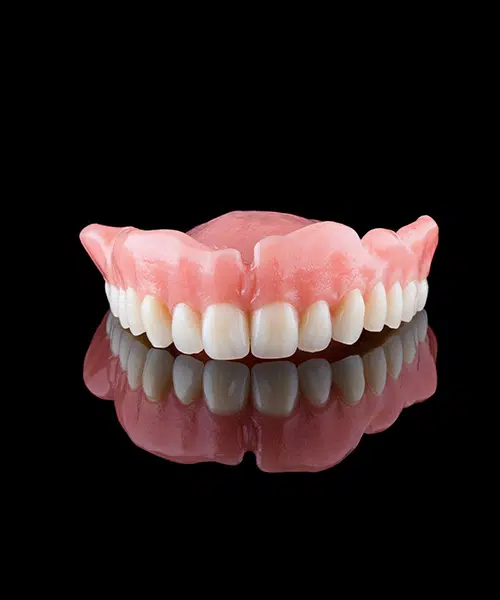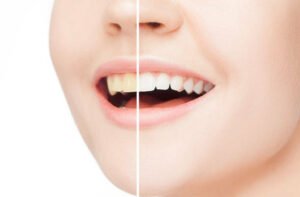If you have lost your natural teeth due to injury, tooth decay, or gum disease, dentures can be a great solution to help restore your smile and oral function. Dentures are removable dental appliances that replace missing teeth and surrounding tissues, and they can be custom-made to fit comfortably in your mouth. In this article, we will discuss what dentures are, how they work, and what you can expect during the denture treatment process.
What are Dentures?
Dentures are prosthetic devices designed to replace missing teeth and surrounding tissues. They can be made of a variety of materials, including acrylic, porcelain, and composite resin. Dentures can either be full or partial, depending on the number of teeth you have lost. Full dentures replace all of the teeth in your upper or lower jaw, while partial dentures only replace a few missing teeth and are held in place with clasps that attach to your remaining teeth.
How do Dentures Work?
Dentures work by replacing missing teeth and surrounding tissues, restoring your ability to chew, speak, and smile with confidence. They are designed to fit snugly over your gums and jawbone, and they can be held in place with suction, dental adhesive, or clasps that attach to your remaining teeth. Dentures can be removed for cleaning and should be soaked in a special solution overnight to prevent them from drying out.
What are the Types of Dentures?
There are several types of dentures available, depending on your specific needs and budget. The most common types of dentures include:
Conventional Full Dentures
These are the most common type of dentures and are used to replace all of the teeth in your upper or lower jaw. They are custom-made to fit your mouth and require several appointments to ensure a proper fit.
Immediate Full Dentures
These dentures are placed immediately after your teeth have been extracted, so you do not have to go without teeth while your gums heal. However, because your gums will shrink during the healing process, these dentures may require adjustments or replacement over time.
Partial Dentures
Partial dentures are used to replace one or more missing teeth and are held in place with clasps that attach to your remaining teeth. They are custom-made to fit your mouth and can be removed for cleaning.
Overdentures
Overdentures are similar to conventional full dentures, but they are designed to fit over your remaining teeth or dental implants for added stability.
What is the Denture Treatment Process?
The denture treatment process typically involves several appointments with your dentist or prosthodontist. Here is what you can expect during the denture treatment process:
Initial Consultation
During your first appointment, your dentist or prosthodontist will examine your mouth and take impressions of your teeth and gums to create a custom mold for your dentures.
Wax Try-In
Once your custom mold is ready, your dentist will create a wax model of your dentures to check the fit and appearance. You will try on the wax model, and your dentist will make any necessary adjustments.
Final Denture Fitting
After the wax try-in, your final dentures will be created based on the mold and wax model. Your dentist will fit your dentures to ensure a comfortable and secure fit.
Post-Treatment Care
Your dentist will provide you with instructions on how to care for your dentures, including how to clean and store them. You will also need to schedule regular dental check-ups to ensure that your dentures are functioning properly and to address any issues that may arise.
How to Care for Your Dentures?
Proper denture care is essential for maintaining the longevity and function of your dentures. Here are some tips for caring for your dentures:
Clean Your Dentures Daily
It is important to clean your dentures daily to remove food particles, plaque, and bacteria. Use a soft-bristled brush and non-abrasive denture cleaner to clean your dentures thoroughly. Avoid using regular toothpaste, as it can damage your dentures.
Soak Your Dentures Overnight
Soak your dentures overnight in a denture cleaning solution to prevent them from drying out and remove any stubborn stains or bacteria.
Handle Your Dentures with Care
Dentures can be fragile, so it is important to handle them with care. When removing or inserting your dentures, do it over a soft surface such as a towel or sink filled with water.
Brush Your Gums and Tongue
Brush your gums, tongue, and any remaining teeth twice a day to remove bacteria and keep your mouth healthy.
Avoid Eating Hard or Sticky Foods
Hard or sticky foods can damage your dentures or dislodge them from your mouth. Stick to softer foods and cut them into small pieces to make them easier to chew.
Schedule Regular Dental Check-Ups
Regular dental check-ups are important for maintaining the health of your mouth and dentures. Your dentist can check the fit and function of your dentures and make any necessary adjustments or repairs.
Contact Us Today!
Conclusion
In conclusion, dentures can have a significant positive impact on your quality of life by restoring your smile and oral function. If you are considering dentures, it is important to seek professional dental care from a trusted provider like Bridge Street Dental. They offer a range of denture services, including full and partial dentures, overdentures, and implant-supported dentures.
Their experienced team can guide you through the denture treatment process and provide you with personalized care to ensure the best possible outcome. Don’t let missing teeth hold you back any longer – contact Bridge Street Dentist or Dental today to schedule a consultation and learn how dentures can transform your smile and your life.







